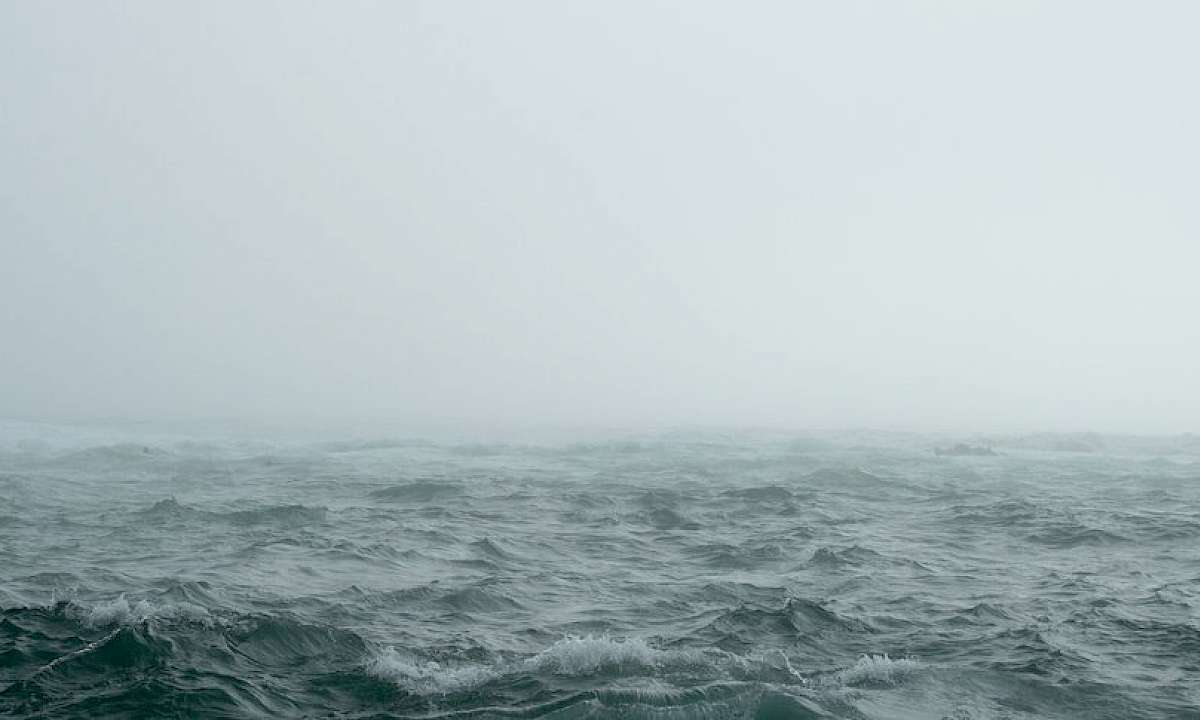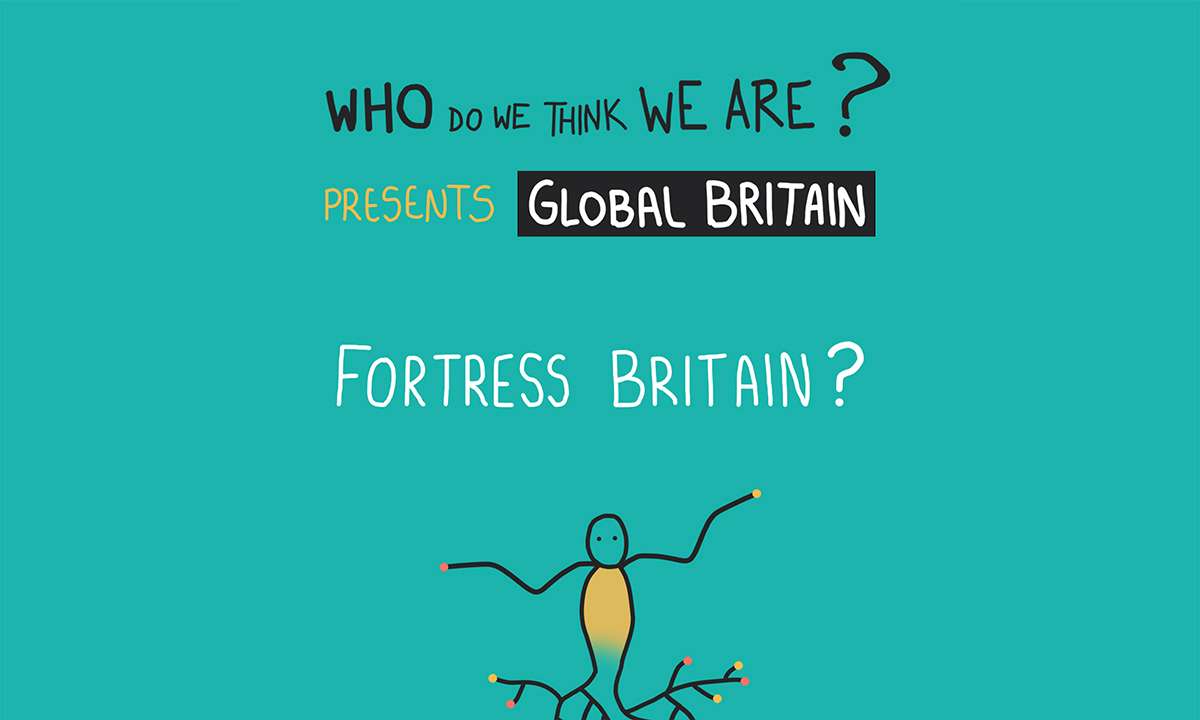
It is pitch dark and freezing cold when, in the early hours of Wednesday 14 December, a call is sent from a boat in distress in the English Channel. By the time the rescuers reach the boat, it is too late for at least four people; the remaining 43 are brought to safety.
Only 12 months ago, another distress call did not trigger such a prompt response, and at least 27 people died. Rescuers didn’t reach the location in time because French and British authorities wasted crucial hours squabbling about whose national water the boat was sinking in.
What we know about irregular crossings in small boats in the English Channel is that they are at record-high levels since data collection began in 2018. At that time, just a handful of people made the crossing this way – less than 300 migrants. The crossing in small boats only began to gain traction during the 2020 COVID-19 lockdown and has grown ever since. Over 40,000 migrants landed in the UK in 2022 – 45 per cent more than in 2021. The variation can be attributed almost exclusively to large numbers of Albanian nationals turning up on small boats since the previous summer. No significant variations have been detected in citizens of other countries such as Iran, Iraq, Afghanistan, Eritrea and Syria. These are all countries experiencing political instability, violent conflict and widespread human rights violations and whose citizens are likely to be recognised as refugees by the UK Home Office.
Due to a combination of Brexit-driven enhanced checks on lorries crossing from Europe and generalised pandemic-related travel restrictions, the sea route suddenly became the only viable option. After probable self-organised trial runs, coordinated smuggling gangs gradually moved to take control of the new route, exploiting an opportunity made possible by the UK’s departure from the EU and its migration governance, burden-sharing and enforcement mechanisms, including the Dublin Regulations.

Source: Home Office. Updated to 31 December 2022
The transformative effects of Brexit and COVID-19 on conditions for small boat crossings is evident if one considers that during the period in which then fellow EU member states were handling the so-called Mediterranean refugee crisis in 2015–16, with over a million irregular sea crossings detected in Greece and Italy and hundreds of thousands of asylum applications in Germany and France, the UK recorded only slightly above-average asylum applications, and almost no small boat crossings were detected in the English Channel.
Is there anything new in Rishi Sunak’s latest plan to tackle irregular crossings?
‘We will introduce new legislation to make it unambiguously clear that, if you enter the UK illegally, you should not be able to remain here. Instead, you will be detained and swiftly returned either to your home country or to a safe country where your asylum claim will be considered.’ (Rishi Sunak, 13 December 2022)
The day before the tragedy in the English Channel, Rishi Sunak had announced in the House of Commons a new five-point plan on illegal immigration. The commitment to ‘stop the boats’ was reiterated in Sunak’s first major speech of 2023. The new measures are not limited to combatting irregular crossings at sea but aim to create an even more hostile environment for irregular migrants in the UK, breaking smuggling networks and deterring people from seeking asylum here.
The proposals are a mix of not-so-new ideas, wishful thinking and legally dubious interventions, including: 1) a ‘new’ small boats permanent operational command which seems to duplicate the Clandestine Channel Threat Command set up in 2020; 2) more resources for raids of business premises suspected of employing irregular migrants, which, given previous experience, is likely to disproportionately target racialised communities; 3) the replacement of hotel accommodation allocated to asylum seekers with holiday parks, military sites and university halls, despite the fact that much of the accommodation costs are due not so much to the location or quality of this accommodation, but rather to the ever-growing backlog of unresolved asylum cases that keep claimants in limbo and unable to work; 4) more decision makers to tackle the backlog of asylum cases within 12 months, a pledge that has left many sceptical, given the Home Office’s current asylum decision time and its poor retention record when it comes to decision makers; and 5) a ‘new agreement and approach’ with Albanian officials to speed up the processing and return of Albanian citizens claiming asylum in the UK, despite the Home Office’s own record showing that 53 per cent of asylum applications from Albanians last year were deemed well founded.
Sunak’s renewed impetus to fight irregular crossings by lodging a war on smugglers does little to address demand for travel facilitation by desperate people seeking protection and an opportunity to restart their life in the UK. There are no safe and legal routes for claiming asylum in the UK. The refugee resettlement schemes may be generous, but only target specific nationalities, namely Ukrainians and Hong Kongers. The resettlement routes for Syrians and Afghans, while formally in place, have either gradually dried up or were never properly established in the first place. For everyone else, crossing the English Channel without authorisation is basically the only route in, as Suella Braverman admitted in the House of Commons.
Returning to closer cooperation with our European neighbours on migration and security is essential to addressing the growth in irregular crossings but, outside the framework of the EU, there are new trade-offs to negotiate with EU countries and others, like Albania.
Tensions surrounding the implementation of the Northern Ireland protocol and unnecessary political stunts like Liz Truss’s infamous ‘Macron, friend of foe?’ have had an impact on the willingness of France and other EU countries to cooperate with the UK on migration control. Despite Sunak’s stated eagerness to build a more collaborative relationship with France, including recently pledging €72.2m to buy drones and finance more police and local authorities on French beaches, Brexit has altered the structural conditions in which the UK manages its borders, making it more likely that irregular crossings of the English Channel will be a long-term feature of immigration.
Deterring those entering the UK irregularly from claiming asylum is a pillar of Sunak’s strategy, which includes deporting people to ‘safe’ third countries against their will. The recent High Court controversial decision in favour of the UK government on the legality of the Rwanda plan – which forcefully deports asylum seekers to Rwanda for their cases to be examined there – is going to boost, in the short term, Sunak’s ‘tough on immigration’ credentials, particularly in the eyes of those who expected Brexit to deliver control of immigration and UK borders. However, it is unlikely to offer a long-term solution. Much of the population opposes this plan. The High Court’s decision places a legal requirement on the Home Office to assess individually and properly if a removal decision could put the individual at risk. Reception capacity in Rwanda is limited. The strain of large numbers of deportees would lead the asylum system to breaking point and in doing so would make the deal no longer legal.
To cite: Sigona, N. (2023) 'Who is breaking the asylum system?', Transforming Society, https://www.transformingsociety.co.uk/2023/01/11/who-is-breaking-the-asylum-system/






